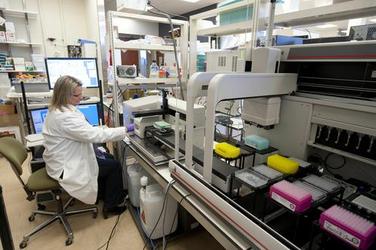Can graviola cure cancer?
The graviola cancer story

Generations of people in the Caribbean, South America and beyond use the graviola cancer remedy. They have been using graviola leaves as a natural medicine to fight cancer. Today we know that graviola contains numerous active compounds and chemicals which have healing properties. One of these compounds is a natural phytochemical known as annonaceous acetogenins. It is the main focus for cancer researchers.
Graviola’s potent anti-tumor properties
Some research confirms that annonaceous acetogenins has potent anti-tumor properties. The graviola compound exhibits selective toxic properties against tumor cells.
Other clinical studies have also shown the powerful anti-cancer, anti-tumor, and anti-viral properties of annonaceous acetogenins.
Recent studies have revealed that this natural compound in graviola has superb properties to inhibit the enzyme processes that are specifically present in membrane of cancerous cells.
Toxic for cancer cells
Through this mechanism of action they are toxic for cancerous cells and don’t create toxicity in healthy cells. That means the cancer cells are attacked and the healthy cells are left to live and thrive.
Purdue University published a promising news article in 1997. It showed that Annonaceous acetogenins is not only effective in destroying tumor cells but also has the ability to show resistance to anti-cancer agents.
It appears to have a unique affinity for such resistant cells. This is one of the graviola benefits that is astounding.
Toxic effects of graviola on cancer
The National Cancer Institute has also explored the toxic effects of graviola against cancerous cells in its plant screening program in 1976. It showed that graviola stems and leaves had active toxic effects against cancer cells.
In various vitro clinical trials (lab studies), research showed that the phytochemical acetogenins found in graviola imparted selective toxic effects against various cancerous cells.
This included lung carcinoma cell lines, prostate adenocarcinoma, breast tumor lines, liver cancer cell lines, pancreatic carcinoma cell lines, colon adenocarcinoma cell lines and multi-drug resistant breast adenocarcinoma.
Other clinical findings conducted by Taiwanese scientists suggested that at very low dosages, annonaceous acetogenins of graviola exhibited highly toxic effects to ovarian, breast, cervical, bladder and skin cancer cell lines.
Article Source: http://EzineArticles.com/?expert=Jenifer_Jones

Hi,
I did not see anything in regards to uterine cancer or uterine sarcoma and graviola. Has there been any success stories in regards to sarcomas of the endometrial /uterine cells? I would be so grateful for a response. Loved the Templeton interview. Thanks kindly.